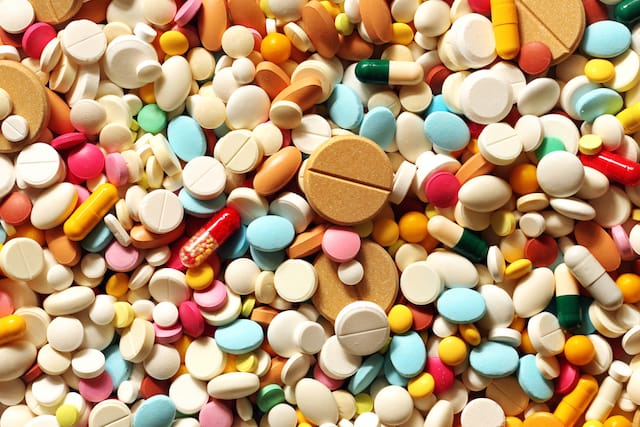Filling Prescriptions? You’re Probably Paying Way Too Much for Them

Like many people, to best live my life, I have to take daily prescription medications to manage chronic medical issues.
However, prescription drugs can be expensive — and the prices keep increasing. Plus, the high cost of insurance can put them out of reach for many adults.
Not long ago, I was without insurance. With a degree in social work and a background in the nonprofit arena, I wasn’t exactly rolling in cash to pay for my medication.
Looking for solutions to my dilemma, I discovered a few ways to save money on prescription drugs. Here’s how I get the medication I need, for less.
1. Check for Generic Equivalents
This one’s simple, but you’d be surprised how many people overlook it.
Ask your doctor or pharmacist if the drug you’re prescribed has a generic equivalent.
Generic medications contain the same active ingredients, and are the same strength, dose and form, as their brand-name equivalents. The only real difference is the cost.
Generally speaking, there’ll be a generic version of any medication that’s been on the market for some time. If the medication you’re being prescribed isn’t extremely new, always check for a generic equivalent.
2. Ask About Prescription Assistance Programs
Ask the drug manufacturer to see if it offers a prescription assistance program for your medication.
Many manufacturers of prescription drugs that don’t have generic equivalents offer programs through which they sell the medication at a reduced cost — or even for free.
To see if your medication has an assistance program available, check with your doctor or pharmacist, or do an online search with your drug name.
Last year, I was able to use a prescription assistance program to help a family member who was prescribed a very expensive medication with no generic equivalent.
His insurance helped with a large portion of the cost, but he was still left to pay $589 per month out of pocket. Through the prescription assistance program, he was able to get his medication for free.
In addition, a prescription assistance program covers the full $100-per-month out-of-pocket cost for one of my medications.
3. Look for Coupons or Rebates
Before you pay full price out of pocket, search for coupons or rebates for your prescription medication.
Several websites, such as Needy Meds, will do the research for you and can help you save up to 70%.
4. Ask About Pharmacy Discount Programs
While you’re comparing prices at pharmacies, ask about possible discount programs.
Some discount programs are specific to individual pharmacies, such as the Rite Aid Rx Savings Program and Walgreens Prescription Savings Club.
Others work at almost any pharmacy. For example, Drugs.com offers a discount card with savings up to 80% off medications.
For maximum savings, ask your pharmacy if you can combine its discount program with one of the above non-pharmacy-specific discount cards.
5. Consider Shopping Online
Some companies buy prescription medications directly from the drug manufacturers and sell them to individuals — which can help you save money.
Since the FDA doesn’t approve pharmacies, these companies are licensed by the states they’re located in.
For example, Health Warehouse is licensed to directly distribute medication to individuals in all 50 states, and it ships your prescription straight to your home.
Blink Health works a little differently; rather than sending medication to individuals, the company distributes medication to patients’ pharmacies. After you submit your prescription online, you can pick it up at one of more than 60,000 pharmacies nationwide, including major chains like CVS.
While neither company is accredited through the Better Business Bureau, both have 4+ stars out of five on Google Reviews, with more than 150 reviews each.
How to Save the Most Money on Medications
Often, I’ll combine these tips to get the best possible price for my prescription drugs.
For example, there’s a name brand available for one of my current medications, as well as a generic option. The name brand ranges from $158 to $240 per month, depending on the pharmacy.
If I find a coupon for the medication, it’ll lower the cost to between $87.66 and $158. I can’t spend that much on one prescription per month, especially since I have several daily medications.
If I choose the generic version of the same prescription and use one of the national discount cards, I’ll only pay $31.80 for the same one-month supply.
While I’m thrilled with the low price, it gets even better.
Through Health Warehouse, I was able to buy my one-month supply of this same medication for $16.50 — a potential savings of $223.50 each month on one prescription.
Prescription medication is expensive, but it doesn’t have to be.
If you’re not able to make your medication more affordable with these strategies, talk to your doctor to see what other options are available.
Your Turn: How have you saved money on prescription medication?
Kelli Lynn has been living well with chronic medical issues since she was a young child. Her goal is to help others living with medical issues to do the same.


















